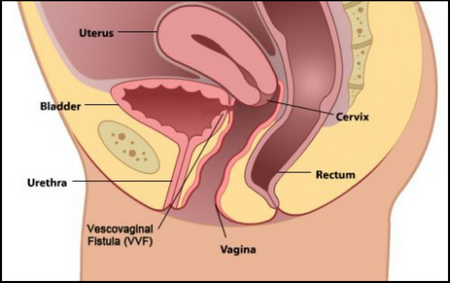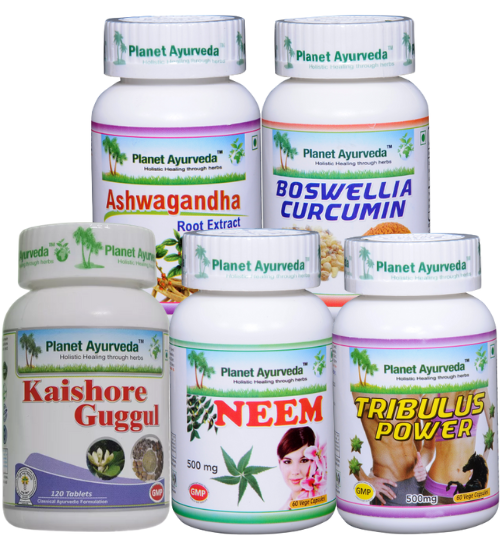AYURVEDIC TREATMENT AND HERBAL REMEDIES FOR URETHROVAGINAL FISTULA
ABSTRACT
A Genitourinary-vaginal fistula occurs between the vagina or uterus (part of the female reproductive system) and the organs of the urinary system. The term genitourinary refers to your genitals and urinary system. Genitourinary vaginal fistula also includes: Ureterovaginal fistula between the vagina and the ureter, which conveys pee or urine from the kidneys to the bladder. Urethro-vaginal fistula between the vagina and the urethra, which conveys pee or urine from the bladder. Today, we will discuss Urethrovaginal fistulas in detail.

INTRODUCTION
Usually, the urinary system and the organ in it are completely separate from the genital tract. The urinary system includes organs that filter blood, produce urine, and remove urine from the body. The female genital tract has organs that take the sperm and protect the internal organs from infection during sexual intercourse. Therefore, it is clear that the two systems are functionally and structurally different from each other. However, when the two systems are connected to each other due to injury, disease, or cancer, the condition is called an entero-vesical fistula. The word “fistula” refers to abnormal communication between two organs, blood vessels, or other structures. Because communication starts in the urethra and ends in the vagina, it is called a Urethra-Vaginal Fistula.
CAUSES
The causes of urethrovaginal fistula are as follows:
- Injury due to catheter: A urinary catheter is a tube embedded through the urethra into the bladder to work with the drainage of pee. When the catheter is taken out without emptying the balloon causes urethral injury, and this is one reason for the urethrovaginal fistula. One more reason for urethral injury might be improper catheter insertion.
- Iatrogenic: Iatrogenic refers to the possibility of fistula formation during physical examination or surgical procedures such as cesarean (C-section) and hysterectomy.
- Urethral trauma: It is the most common cause of UVF. The urethral injuries in women are caused by pressure because of childbirth, fracture, sexual assault, and accidents. These injuries harm the urethra to the degree that the urine spills into the encompassing organs, incorporating the vagina and that results in a urethrovaginal fistula.
SYMPTOMS
There are the following symptoms associated with UVF
- Urinary incontinence or urine leakage from the vagina is the most common symptom
- There is a risk of UTI, genital and kidney infections
- Patients may experience pain at the time of sexual intercourse because of urine leakage
- Urine has a foul odour
- Urine shows gas bubbles when passing urine
- Vaginal discharge is typically foul-smelling
- The patient has itching and irritation of the skin around the genitals and other organs due to urination
COMPLICATIONS
- If it is left untreated, then the risk of UTI (Urinary tract infection) and vaginal infections increases.
DIAGNOSIS
- Medical History
- Physical examination
- Urinalysis
- Blood tests
- Fistulogram X-ray to view the exact location of the fistula.
- Intravenous urography.
- Cystoscopy to check the location of the fistula.
- CT Scans give a thought regarding how much the urethra is attached to the vagina and the presence of air in the urethra.
- Sigmoidoscopy to check if there is a presence of bubbles in the urine because of the connection. between the vagina and urethra.
- MRI to see the image of internally present organs and the location of the fistula.
TREATMENT
- Conservative treatment
- Surgical treatment
AYURVEDIC OVERVIEW OF URETHROVAGINAL FISTULA
In Ayurveda, the urethrovaginal fistula is considered a Vata dosha. Vata dosha controls body movements, such as bodily fluids. Heavy Vata dosha can cause many health problems, including urinary problems. The causes of Vata dosha deficiency depend on your diet and lifestyle. Ayurvedic treatment for urethro-vaginal fistula includes herbs, dietary changes, lifestyle changes, and some panchakarma treatments. The aim of Ayurvedic treatment is always to balance the destructive doshas, likewise, the Vata dosha is calmed while strengthening the urine to facilitate the healing of the fistula. Fistula is correlated with Bhagandara in Ayurveda. The disease in which Bhaga, Guda and Basti Pradesh become Vidaarita (get torn) is known as Bhagandara.
TYPES OF BHAGANDARA
It is of 5 types:
वातपित्तश्लेसन्निपातागन्तुनिमित्ताः शतपोनकोष्ट्रग्रीवपरिस्राविशम्बूकावर्तोन्मार्गिणो यथासंख्यं पञ्च भगन्दरा भवन्ति। (सु. नि. ४/३)
- Shataponaka (Vata dosha)
- Ushtragreeva (Pitta dosha)
- Parisraavi (Kapha dosha)
- Shambookavarta (Sannipatja-three dosha)
- Unmargi (Agantuja – due to injury)
TREATMENT
All fistula types are treated by clearing their tracts. In this context, Acharya Sushruta appreciated the healing power of the Kshara Sutra. Apply the “Kshara Sutra” on the tract of the fistula. It helped clear paths and repair tracts early. Therefore, it has both purifying (Shodhana) and healing (Ropana) purposes.
AYURVEDIC FORMULATIONS USED IN UVF
- Triphala Guggulu
- Gandhak Rasayana
- Chandraprabha Vati
- Arogyavardhini Vati
- Lohasava
- Dasamoolarishth
- Mahatiktadi Ghrita
- Yograj Churna
- Abhayarishta
HERBAL REMEDIES FOR UVF BY PLANET AYURVEDA
Planet Ayurveda is an Indian Ayurvedic pharmaceutical company that treats patients with its herbal medicines. Planet Ayurveda produces a wide variety of supplements. Preparations can be capsules, tablets, powders, syrups, etc. All preparations have been tested to be effective and free from toxic chemicals and pesticides harmful to living beings. Ayurvedic medicine formulated by Planet Ayurveda for the treatment of urethro-vaginal fistula is as follows:
- Kaishore Guggul
- Neem Capsules
- Ashwagandha Capsules
- Tribulus Power
- Boswellia Curcumin


PRODUCT DESCRIPTION
1. KAISHORE GUGGUL
It is a polyherbal formulation that is made up of Guggul (Commiphora mukul), Guduchi (Tinospora cordifolia), Vidanga (Embelia ribes), Haritaki (Terminalia chebula), and many more. It treats inflammatory conditions, such as arthritis, piles, etc. It maintains Kapha, pitta, and Vata and reduces inflammation that promotes the healing of the fistula. It is a natural blood cleanser. It has anti-inflammatory, anti-allergic, and anti-bacterial properties.
Dosage: 1-2 tablets, two times a day.
2. NEEM CAPSULES
Neem capsules are herbal formulations that contain only one herb; a standardized extract of Neem (Azadirachta indica). Its taste is bitter and its potency is cool. It maintains Vata and Kapha doshas. It is indicated in heart diseases, fever, and loss of appetite. It has anti-inflammatory, anti-diabetic, antifungal, and antibacterial properties. It prevents infection by the reduction in swelling. It supports the immune system and promotes quick healing.
Dosage: 1-2 capsules, two times a day.
3. ASHWAGANDHA CAPSULES
These are polyherbal capsules that contain a standardized extract of Ashwagandha (Withania somnifera). It has medhya, rasayan, and dhatu pushti kara properties, and it is good for brain and neurological health. It pacifies the Kapha and Vata dosha but maintains all three doshas. It has an astringent and bitter taste. Its potency is hot. It is indicated in depression, anxiety, swelling, and skin disorders. It pacifies Vata and Kapha dosha.
Dosage: 1-2 capsules, two times a day.
4. TRIBULUS POWER
These are single herbal formulations that contain Gokshura (Tribulus terrestris). Its taste is sweet. It has amazing effects in females with urethrovaginal fistula. It promotes healing and reduces overall inflammation. It also treats erectile dysfunction and sexual vitality. Gokshur helps in managing stress, eye problems, obesity, weak nervous system, menstruation, urinary tract infections, etc. It balances the Pitta, Vata, and Kapha dosha. It has diuretic properties. It promotes healthy urinary system function in patients who are suffering from urethrovaginal fistula.
Dosage: 1-2 capsules, two times a day.
5. BOSWELLIA CURCUMIN
These are polyherbal capsules that are made up of Shallaki (Boswellia serrata) and Haridra (Curcuma longa). Shallaki helps to reduce inflammation and treats the fistula. Haridra has antioxidant, immunomodulatory, and anti-inflammatory effects. This combination of two herbs promotes healing in UVF conditions. Curcumin removes toxins from the body.
Dosage: 1 capsules, two times a day.
DIET RECOMMENDATION
Wholesome diet: Kulattha (horse gram), Godhuma (wheat), Dhatri (gooseberry), Pippali, Ajadugdha (goat milk), Takra (buttermilk), Navanita (butter), vastuka (cucumber), vrintaka (brinjal), raktashali (red rice), etc.
Unwholesome habits and diet: Dushit aahar (contaminated food), lanka (chilly), katu aahar (pungent food), ashwa yana (riding the horses), nidrahani (no sleeping at night), kukkutasana (squatting posture), etc.
CONCLUSION
Urethrovaginal fistula (UVF) is a connection between the urethra and vagina that is abnormal. Early analysis and treatment of this condition can be useful in quick management and forestalling complications. Ayurvedic medicines are utilized really by Ayurvedic medical care experts in dealing with the strange symptoms of this condition to a large extent. Proper treatment incorporates different techniques like diet management, lifestyle change, and exceptional treatments, in Ayurveda. These treatments are demonstrated separately as indicated by the symptoms, seriousness, and site of the condition.
Dr. Vikram Chauhan
Latest posts by Dr. Vikram Chauhan (see all)
- ALTERNATIVE AYURVEDIC TREATMENT FOR CHRONIC KIDNEY DISEASE - July 24, 2024
- Ayurvedic Treatment for Liver Disease with Herbal Remedies - July 22, 2024
- Ayurvedic Treatment For Diabetes Mellitus With Herbal Remedies - July 4, 2024
- Ayurvedic Aspect Of Liver And Management Of Liver Diseases - July 3, 2024
- Natural Ayurvedic Treatment For Fibromyalgia With Herbal Remedies - July 2, 2024




